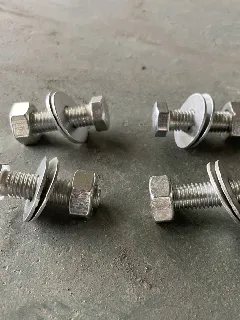loading...
- No. 9, Xingyuan South Street, Dongwaihuan Road, Zaoqiang County, Hengshui, Hebei, China
- admin@zjcomposites.com
- +86 15097380338
- Welcome to visit our website!
frp water storage tank
The Importance of FRP Water Storage Tanks
In recent years, the demand for efficient and durable water storage solutions has surged, particularly in industries that require reliable access to water for production processes, irrigation, and domestic use. One such solution that has gained prominence is the Fiber Reinforced Plastic (FRP) water storage tank. Known for its strength, corrosion resistance, and lightweight properties, FRP is revolutionizing the way water is stored and managed.
What are FRP Water Storage Tanks?
FRP water storage tanks are constructed using a composite material that consists of a polymer resin reinforced with fibers, often glass or carbon. This combination creates a tank that is not only robust but also resistant to environmental factors such as UV radiation and chemical corrosion, which makes it an ideal choice for various applications. The versatility of FRP allows for the design of storage tanks in different shapes and sizes, accommodating the unique needs of industries and municipalities.
Advantages of FRP Water Storage Tanks
1. Corrosion Resistance One of the most significant advantages of FRP tanks is their inherent resistance to corrosion. Unlike traditional metal or concrete tanks, FRP does not rust or degrade in the presence of water and chemicals, ensuring longevity and reduced maintenance costs over time.
2. Lightweight Material FRP tanks are considerably lighter than their metal or concrete counterparts. This attribute makes them easier to transport and install, reducing the logistical challenges often associated with water storage solutions. The lightweight nature also minimizes the structural support required, making them ideal for rooftops or other weight-sensitive areas.
frp water storage tank

3. Customization The manufacturing process of FRP allows for high levels of customization. These tanks can be designed to meet specific capacity requirements and can be tailored to integrate with existing systems. Additionally, they can be produced in various colors and finishes, providing an aesthetic advantage in certain settings.
4. Longevity and Cost-effectiveness The durability of FRP tanks results in lower replacement costs over time. With a lifespan that often exceeds that of traditional storage solutions, investing in FRP tanks is a cost-effective option for businesses and municipalities looking to optimize their water storage.
5. Eco-friendly Option FRP is often seen as a sustainable option due to its energy-efficient manufacturing processes and recyclability. As industries increasingly prioritize sustainability, FRP tanks represent a responsible choice that aligns with environmental goals.
Applications of FRP Water Storage Tanks
FRP water storage tanks find applications across various sectors, including agricultural, industrial, municipal, and residential uses. In agriculture, they are used for irrigation water storage, ensuring crops receive adequate hydration. In industrial settings, they serve as essential components for processing and cooling operations. Moreover, municipalities benefit from FRP tanks for potable water storage due to their health and safety compliance.
Conclusion
In summary, FRP water storage tanks present a modern solution to the age-old challenge of water storage and management. Their corrosion resistance, lightweight nature, customization options, longevity, and eco-friendliness make them an appealing choice for a variety of applications. As industries and communities continue to seek innovative solutions for their water storage needs, FRP tanks will undoubtedly play a crucial role in shaping a sustainable and efficient water management future.
-
GRP Structures: The Future of Lightweight, High-Performance EngineeringNewsJun.20,2025
-
FRP Water Tank: High-Performance Storage for Corrosive and Clean Water SystemsNewsJun.20,2025
-
FRP Square Tube: The New Industry Standard for Chemical and Structural ApplicationsNewsJun.20,2025
-
FRP Pultruded Profiles: The Ultimate Choice for Lightweight Structural StrengthNewsJun.20,2025
-
FRP Handrails: The Safer, Smarter, and Stronger Choice for Modern InfrastructureNewsJun.20,2025
-
FRP Grating: The Smart Solution for Durable, Lightweight Industrial FlooringNewsJun.20,2025
-
Why Choose a Galvanized Water Tank for Your Storage NeedsNewsMay.21,2025
